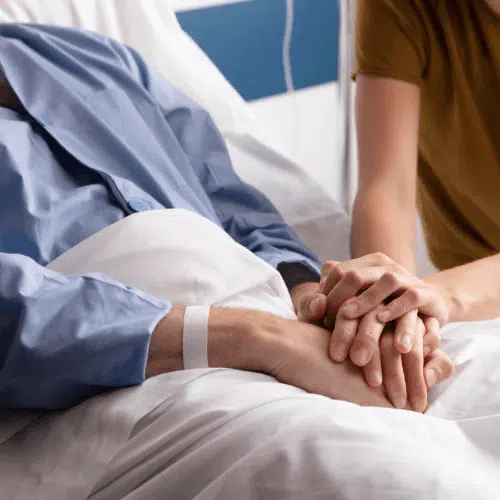5 Simple Techniques For Axis Spine And Orthopedics
5 Simple Techniques For Axis Spine And Orthopedics
Blog Article
Some Known Incorrect Statements About Axis Spine And Orthopedics
Table of ContentsAxis Spine And Orthopedics - QuestionsNot known Details About Axis Spine And Orthopedics The smart Trick of Axis Spine And Orthopedics That Nobody is DiscussingThe 3-Minute Rule for Axis Spine And Orthopedics
An orthopedic specialist is a doctor that specializes in dealing with troubles of the bones, joints, and connective tissues, and guaranteeing you keep a healthy and balanced musculoskeletal system., we have actually highly qualified orthopedic cosmetic surgeons that are qualified of dealing with clients of all ages. I obtained involved in research study during my very first year of medical institution, and I started making connections with orthopedic specialists early on.
Discuss the post-operative treatment strategy with your surgeon. Arrange for transport to and from the hospital on the day of surgical treatment.
Axis Spine And Orthopedics Things To Know Before You Get This

Your medical professional will give plenty of details relating to post-operative treatment, including just how to remain clean and maintain the medical location tidy. Following these suggestions can prepare you literally and mentally for your orthopedic surgical treatment. Bear in mind to maintain a positive overview and depend on your medical group's expertise, adding to a smoother recuperation procedure.

Nobody expects you to understand anything, so do not try to memorize a bunch of arbitrary realities. Otherwise, joint discomfort can truly mess up your life.
Usual conditions dealt with by orthopedic doctors are: Fractures and Bone Trauma: Broken bones and other injuries from crashes or effects. Bone Cancer Cells: Growths in the bones. Orthopedic Injury: Serious injuries affecting bones, joints, or soft tissues.
Sprains and Strains: Injuries to ligaments and muscle mass. Tendinitis: Swelling of the ligaments. Orthopedic doctors perform a range of procedures to aid individuals with musculoskeletal problems. Typical instances are knee and hip replacements. Joint Restoration: Rebuilding a damaged joint to restore its feature. Bone Grafting: Taking bone from one component of the body and transplanting it to another area to fix and restore harmed bones. Reconnecting Nerves: Fixing broken nerves to bring back activity and sensation. Back Disk Replacement: Replacing a damaged back disk with a synthetic one to ease discomfort and bring back function. You'll require to take and pass the Medical University Admission Examination( MCAT). This standard examination analyzes your expertise and abilities necessary for success in clinical school. Medical institution is an extreme

About Axis Spine And Orthopedics
Next, they finish an orthopedic residency. It's generally five years and provides hands-on knowing in a medical setup. Visits usually include: Discussing your signs and symptoms, medical history and way of life.
Therapy suggestions. Some problems need additional imaging, like a CT check or MRI for even more in-depth sights of the painful location. Your orthopedist will suggest treatments to reduce symptoms until you receive a diagnosis. Orthopedic cosmetic surgeons focus on nonsurgical and surgical techniques. For certain kinds of orthopedic injury or hereditary conditions, surgical treatment is often the very first line of therapy. For the majority of other conditions, orthopedists try nonsurgical therapies. It may take even more than one sort of treatment to achieve enduring alleviation. Picking the right is important for effective medical outcomes and enhanced person healing. With a wide variety of options readily available in the marketplace, it can be frustrating for both cosmetic surgeons and patients to make a notified decision. The top five factors to take into account when selecting an orthopedic dental implant are medical compatibility, cost-effectiveness, factors to consider for modification surgery, patient-specific aspects, and the layout and innovation of the implant. They are available in numerous forms, dimensions, and materials, each offering a specific objective based on the individual's requirements. Comprehending the basics of orthopedic implants is vital prior to diving into the decision-making procedure. One of the leading factors to consider when selecting an orthopedic implant is its compatibility with the operation. Various implants are created for different surgical techniques and methods. The orthopedic implant ought to be specifically designed to fit the client's composition and make sure security during the recovery process. Surgical compatibility includes variables such as implant size, form, and material. The success of orthopedic procedures counts heavily on the appropriate selection and placement of implants that work with the individual's makeup and medical background. By prioritizing person security and well-being, orthopedic surgeons can accomplish effective results and give the best quality of like their patients. Surgeons have to very carefully consider the biomechanical homes of the implant and exactly how it will certainly integrate with the person's bone framework. This will contribute to far better surgical results, lowered complications, and much shorter recuperation time. When choosing implants for a person, it is necessary to think about a variety of patient-specific aspects that can affect the success and outcome of the procedure. These factors encompass the individual's age, bone top quality and quantity, oral health condition, clinical background, lifestyle practices, and aesthetic preferences. For older patients with jeopardized bone density, shorter implants or grafting procedures might be advantageous to provide the necessary stability and support. 3. Is the size of the orthopedic dental implant an important consideration? Just how does it influence the operation and the patient's recuperation? Yes, the size of the implant is important as it needs to match the individual's framework for proper fit and capability. 4. Can the person's age and way of living contribute in picking one of the most ideal orthopedic dental implant? Definitely. Exactly how does the expense of an orthopedic implant element into the decision-making process, and are there means to stabilize high quality with cost? The expense of the implant is a crucial consideration, but it ought to not be the sole determining variable. Stabilizing high quality with price includes evaluating different implant alternatives 'long-lasting advantages and potential issues. Report this page